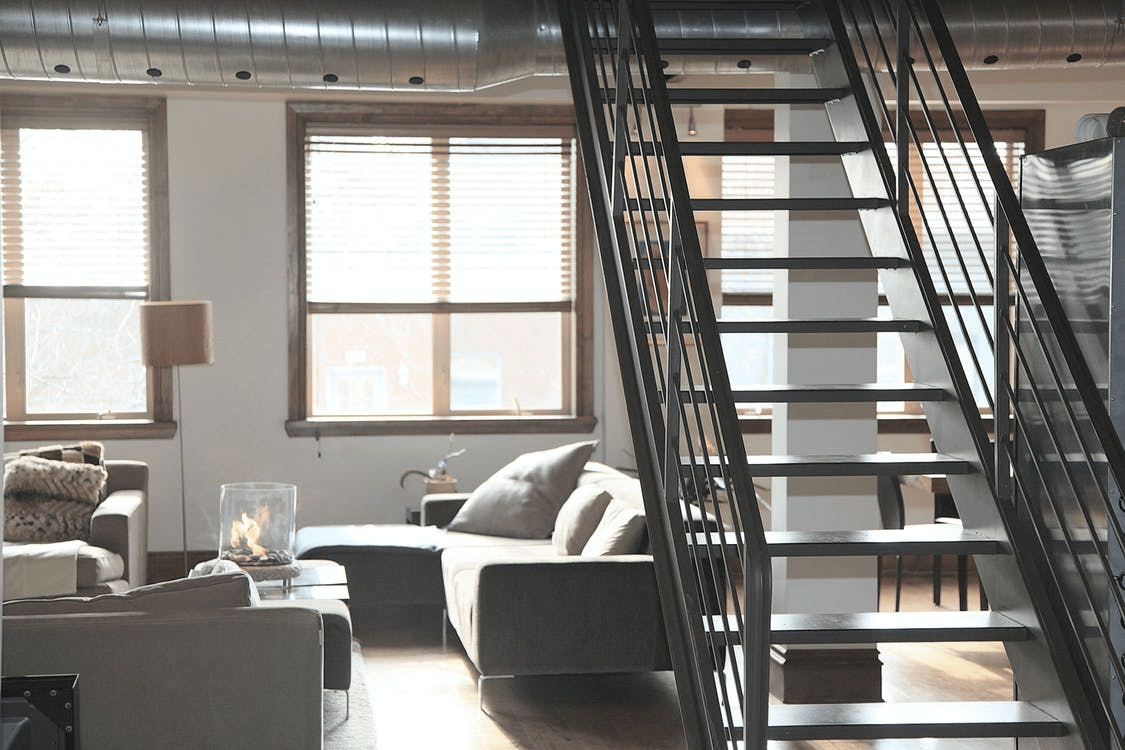
Is the buying a condo vs renting an apartment argument making your life harder?
Both solutions offer a similar living style and architectural format. But choosing one over the other presents a very different lifestyle type, and it’s hard to distinguish between buying a condo and renting an apartment.
Even a lifetime renter in love with apartment living probably has a few internal struggles about whether it would be wiser to purchase a condo.
So, what’s the right answer?
Keep reading for everything you need to about the benefits of condo ownership vs rentals.
Definitions
Before diving into the nitty-gritty differences, it is important to establish what each housing type means for you and your family.
So…
What is a Condo?
A condominium (condo) is a private unit within a community of other units. Condo owners own and share common areas such as gyms, outside hallways, elevators, garages, and pools.
Some condos are in high-rise buildings, while some markets have detached units. A condo owner owns the interior of their condo and the exterior wall structural components.
As Common Interest Developments (CIDs), condos have a Homeowners’ Association (HOA). The association handles the management of common areas and Covenants, Conditions, and Restrictions (CC&Rs) of the property.
CC&Rs are rules that govern the use of specific areas of the complex or building. Violating the rules means the HOA can impose penalties.
What is an Apartment?
An apartment is a rented residential unit that is part of one or multiple residential buildings. You will find a management company or one owner doing the upkeep and maintenance of all the units.
Rental lease options for apartments are flexible and may range from a couple of months to a year. Renters have access to common areas such as trash disposal, covered parking, and pools.
As of 2021, there were nearly 44 million renter-occupied households. The statistics show a steady increase in the demand for rentals since 1975.
How an Apartment Compares with a Condo
Condos and apartments have several similarities. They both have the same type of amenities, such as shared walls and green spaces.
However, condo owners pay for the maintenance of their units via an annual assessment fee and also pay property taxes. A condo owner can also rent out a unit to a tenant and earn equity when they make monthly mortgage payments.
An apartment renter is not usually responsible for major maintenance of their units, such as replacing carpeting or blinds. The apartment’s property manager schedules repairs and maintenance during the lease period and after a renter moves out.
Apartments cater to the public. Condos serve individuals who want to be homeowners.
Finally, condos come with high-grade appliances and finishes than apartments because they are for sale.
Buying a Condo

Now that you know what condo living and apartment living means, it’s time we dig into the renting vs. buying a condo debate so you find out what is right for you.
When you purchase a condo, you are making an excellent investment for future security. Condo ownership safeguards your living space for years.
But what are the pros and cons?
Pros of Buying a Condo
Here is a list of all the benefits you get when you buy a condo unit.
Low-Maintenance Living for Condo Owners
Most, if not all, exterior maintenance on condos is under the HOA. The arrangement is best for homebuyers who do not want to deal with the more responsibilities or higher maintenance of owning a house. These responsibilities include fixing a leaky roof or mowing the lawn.
Excellent Social Opportunities
Some HOAs host regular social events, such as doggy playdates and pool parties. Further, you are more likely to meet your neighbors because you see them in passing. The sense of community in condo living is excellent.
Amenities
You may have access to high-quality amenities such as a dog park, clubhouse, pool, and a business center, depending on the condo community. Plus, you share the cost of enjoying these amenities with other residents.
Enhanced Security
Security staff at the entrances of some condo communities make them more difficult to access from outside compared to townhouses or single-family homes. Condo living is also comfortable for single people who dislike living alone.
Affordable
Condos are more compact and require less land compared to single-family units, making them more affordable. The property taxes are low, so condo living is perfect for first-time buyers.
Cons of Buying Your Condo
However, buying a condo also comes with a few downsides.
The Down Payment
You require making a down payment of between 3% and 20% of the unit’s purchase price before you own a condo. The down payment requirements differ from those for a single-family unit because most condo developments may not qualify for mortgage types insured by the U.S. Department of Veterans Affairs (VA loans) or the Federal Housing Administration (FHA).
HOA Rules
HOA rules are sometimes too restrictive and may include guidance on everything from the number of pets you can have to noise levels. Always read the bylaws before purchasing a condo and make sure they will not be a problem for you and your lifestyle.
Lack of Privacy
Common areas such as the outdoor patios, hallways, amenities, and lobby can make buying a condo the wrong move if you value privacy. Shared spaces also come with noise problems.
Rising Fees
HOA fees are on the increase to cover the increased maintenance costs, property insurance, and other amenities. Factor the HOA fees when buying a condo, especially in expensive markets. Also, HOA can impose special assessments for unexpected expenses and new amenities.
An Investment Risk
Sharing ownership of a building with other people makes buying a condo a risky investment. Short-selling or foreclosing a single condo can see the value of other condos in the same complex fall.
Limited Outdoor Spaces
Most condos maximize on space by building up, which reduces the amount of green or outdoor space you have. A condo might not be the right unit for you if you enjoy parking your work vehicle at home or require outdoor space for pleasure or work.
Restrictive Policies
Purchasing into a shared complex means you commit to following the rules. Some rules prohibit the number of units owners can rent out. Many associations do not allow condo owners to rent out their units.
Renting

Renting an apartment is an excellent proposition if your career and personal needs are more transient. Apartment living also means you are not tied down with a mortgage payment.
Knowing both sides of rentals as you research buying a condo vs renting can help you make an informed decision.
Pros of Renting
Apartment renting is not for everyone, but there are some advantages when you are not a homeowner.
Apartment Living is Affordable
Apartments are more flexible and affordable, which allows you to move from one apartment complex to another one in the city or across the country easily. You also have the option of choosing a long-term or short-term lease depending on your current needs.
Move-In Ready
Apartments get a thorough cleaning, a fresh coat of paint, and a brand new carpet before you move in. However, ask the property managers how often they refresh the unit if you intend to stay longer than a year.
No-Hassle Maintenance
Renters do not deal with the maintenance and repairs to their units. All maintenance, including garbage collection and disposal, is the responsibility of the apartment manager or owner.
Access Several Amenities
Living in an apartment lets you enjoy amenities such as trash pickup, parking, and security. Many apartment complexes also have on-site swimming pools, fitness centers, or even pet-washing stations.
Fixed Expenses
The only upfront cost of moving into an apartment is the security deposit and the first month’s rent. The fixed expenses make apartment living accessible to a wider range of people compared to purchasing a condo.
Cons of Renting an Apartment
Living in an apartment also has its downsides.
No Parking
Parking is a challenge for those living in apartment complexes that do not offer allocated parking. The problem is even worse when you have visitors because they need to pay for street parking or apply for permits.
Pet Restrictions
Some apartments have strict guidelines on the number and type of pets you can keep, while others do not allow pets. Pet-friendly complexes expect renters to pay an initial pet deposit or even require you to make monthly payments for each pet. Other restrictions can also conflict with your lifestyle.
Monthly Rent Payments Don’t Build Equity
Renting an apartment comes with fewer upfront costs, but you will not purchase the space and build long-term wealth through equity. Further, you cannot get access to loan programs for first-time homebuyers requiring little to no money down.
Limited Privacy
You share walls and may have people living above and below you. The shared space increases your exposure to more noise, less privacy, and several distractions.
No Personalization
You do not own the rental property, so you cannot do much to improve your space. Most apartment leases restrict renters from doing several things, such as repainting walls or changing appliances. Restoring an apartment to its original condition is the resident’s responsibility and may be more than the deposit.
What’s Better for Your Life—Condo or Apartment?
The right housing depends on your finances, how long you intend to live in the same area, if you are ready for a mortgage, and the importance of building equity via homeownership.
Purchase a condo if:
- Plan to stay in the same area for several years
- You qualify for a mortgage with a good credit score and down payment
- You are looking to rent out part of your space
- Planning to build equity in your home
- Want to make modest modifications to your living space
Rent an apartment if you are:
- Not sure whether you will live in the same area for long
- Struggling to qualify for a mortgage because of a bad credit score, for example
- Looking to minimize the bills you are paying
- In a transitional period of your life
- Looking for amenities common in shared spaces
Should I Buy a Condo or Rent?
It is up to you to decide for yourself, depending on the consequences.
Purchasing a condo can help you build equity and expand your asset portfolio. You also have the option to personalize and maximize your condo space. However, renting an apartment means you can easily pack up and go once the lease expires. Everyone has a different opinion on buying a condo vs renting, so examine your current financial situation and lifestyle, and use this guide to find out which option is best for you.

In her 25-year career, Steph Wilkinson has been involved in the acquisition, marketing and sales of over $3 Billion dollars of residential real estate. A number of years ago, Steph transitioned into Brokerage Leadership for National real estate brands and tech start-ups. She has served as a Business Strategist for real estate agents and brokerages alike and is also a real estate coach and trainer. In her new role with the Iconic Team, Steph will be responsible for the growth of the team and will be working with all of our agents to increase their productivity and bottom line.




